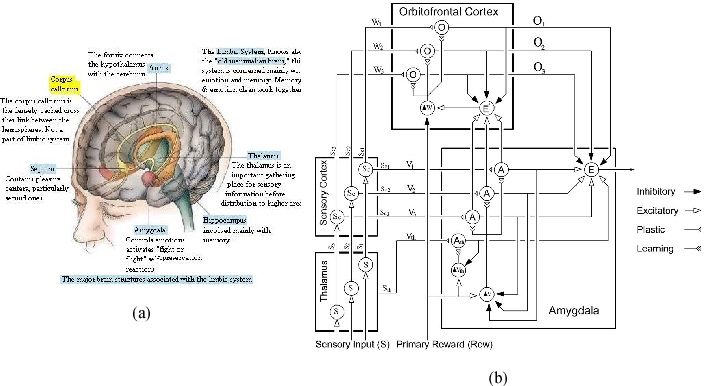23 years ago while in medical school, and passionate about decoding the mind and brain, my curiosity led me to study neuroscience and later control engineering and computer science and I was fortunate to become a student of the Late Prof. Caro Lucas. He was one of the gurus of control engineering globally, a student of Prof. Zadeh, the father of fuzzy systems. After a couple of semesters, Caro asked me who are you, and I told him my story we became friends and eventually started working on intelligent control systems, specifically bio-inspired control systems, combining neuroscience and AI.
With our unique approach and inspired by the emotional learning process in the mammalian brain, we invented the first controllers that made decisions based on emotions and named it BELBIC (stands for Brain Emotional Learning Based Intelligent Controller). Based on the computational model inspired by the neural structure and function of the amygdala and orbitofrontal cortex in the human brain, BELBIC is designed to process sensory inputs and emotional signals to generate appropriate control outputs.
BELBIC has shown improved performance compared to traditional control methods, especially in handling uncertainties and disturbances. It’s also way faster and computationally more efficient and is particularly effective in dealing with complex, non-linear systems and environments with high levels of uncertainty or disturbance.
BELBIC can adapt to changing conditions and learn from past experiences, making it more flexible than many traditional control systems. It can process multiple inputs simultaneously, including both sensory and emotional signals, leading to more sophisticated decision-making.
For the last 20 years, BELBIC has been applied in various fields, including robotics, industrial control systems, and autonomous vehicles. Here are some major categories among more than 400 applications:
Industrial Control Systems
Robotics
Automotive Industry
Power Systems
Aerospace
Consumer Electronics
Medical Devices
Financial Systems
Environmental Control
Transportation
BELBIC’s development and widespread application illustrate the rapid progress and far-reaching impact of AI technologies. As an early example of integrating emotional learning into control systems, BELBIC represents a stepping stone towards more sophisticated AI that can process and respond to complex, multifaceted inputs. This trajectory points toward future bio-inspired AI systems with increasingly human-like decision-making capabilities, potentially leading to advancements in areas such as natural language processing, adaptive learning systems, and even components of artificial general intelligence (AGI) and something more powerful, Artificial general emotional intelligence (AGEI).
To be continued on day 046/365
